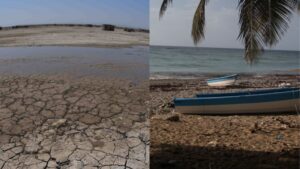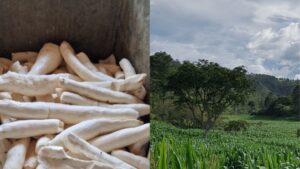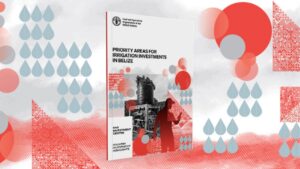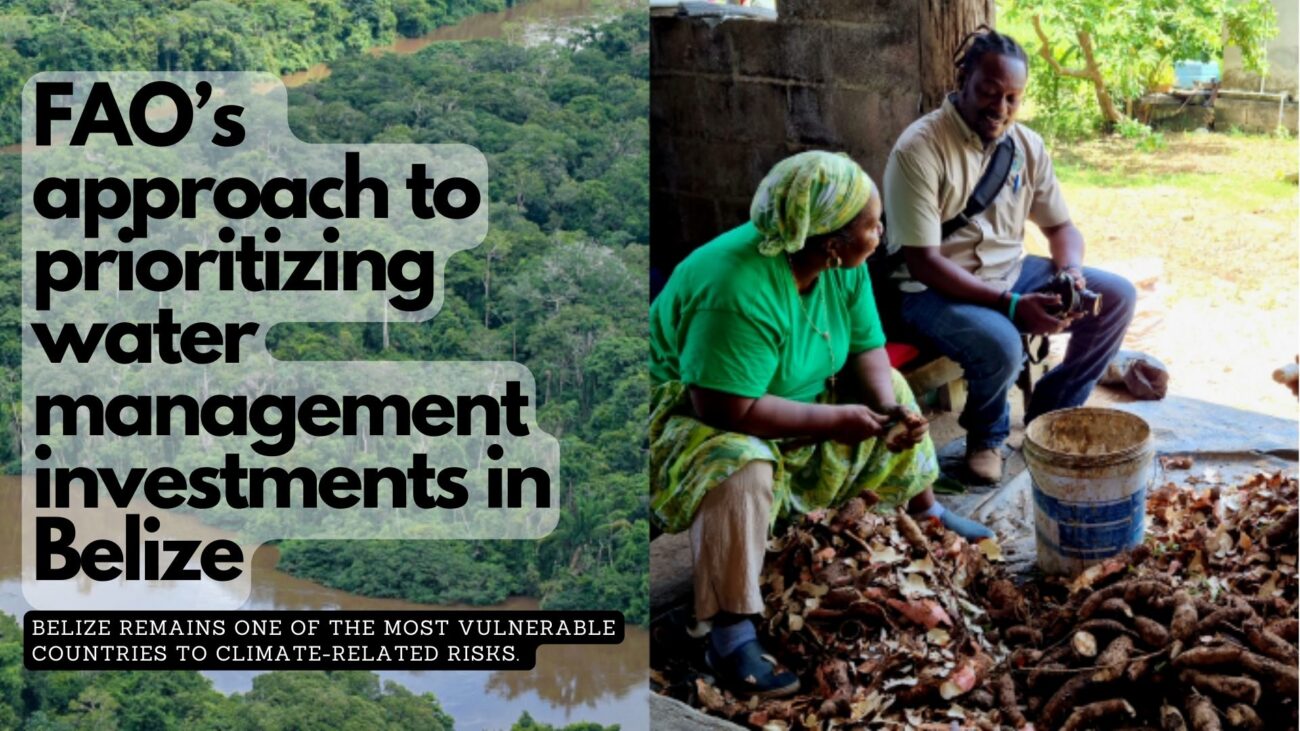FAO’s launches innovative approach to prioritizing water management investments in Belize
FAO’s launches innovative approach to prioritizing water management investments in Belize
The FAO Investment Centre today launched a study highlighting FAO’s new methodology to identify and prioritize investments in irrigation and drainage in Belize. The study outlines a practical framework for policymakers and private sector investors to address climate-related risks and bolster agriculture resilience through investments in water management.
Mohamed Manssouri, Director of the FAO Investment Centre, said; “It is vital that we boost strategic irrigation and drainage investments, with the goal to elevate agricultural productivity and support Belize’s smallholders to deal with climate challenges.”
‘Priority areas for irrigation investments in Belize’ shows how data-driven investments in water management – alongside improved data availability and strategic resource allocation – can reduce climate risks to Belize’s agriculture sector.
Urgent need to support farmers facing climate threats
 Belize remains one of the most vulnerable countries to climate-related risks. Threats of sea-level rise, intensified tropical storms, decreased precipitation, and rising temperatures, underscore the urgent need for investment to boost climate resilience.
Belize remains one of the most vulnerable countries to climate-related risks. Threats of sea-level rise, intensified tropical storms, decreased precipitation, and rising temperatures, underscore the urgent need for investment to boost climate resilience.
In 2019 a severe drought devastated agricultural production and hampered economic growth, with Belizean farmers collectively losing as much as USD 38.5 million. The sugar industry was severely impacted, necessitating government intervention to provide financial aid for affected producers.
Climate-induced shocks have not only jeopardized food security and damaged infrastructure, but also triggered widespread economic repercussions – including increased transportation and food prices.
Identifying investment priorities
 Recognizing the urgency, the Government of Belize is prioritizing water management – as demonstrated in the National Agriculture and Food Policy (NAFP) 2015–2030 and the National Climate Resilience Investment Plan.
Recognizing the urgency, the Government of Belize is prioritizing water management – as demonstrated in the National Agriculture and Food Policy (NAFP) 2015–2030 and the National Climate Resilience Investment Plan.
To support these goals, FAO’s innovative approach aims to guide policymakers and private sector investors in identifying investment priorities within water management infrastructure.
Roble Sabrie, Economist, FAO Investment Centre and lead author of the study, said; “We sought to develop an evidence-based decision-making system that is practical and tailored to improving national and local planning, and supporting efficient resource allocation. To prioritize projects effectively, we considered technical, financial, economic, social, and environmental aspects – ensuring the approach is both comprehensive and practical.”
FAO employed a dynamic mix of on-the-ground data and advanced tools like EarthMap and Google Engine to map out Belize’s irrigation and drainage needs. This proposed approach combines diverse data sources, including temperature, precipitation, water deficit, and land use. It considers climate trends, assesses impacts, and estimates required investments for sustainable water access, focusing on priority watersheds.
Luis Loyola, Senior Irrigation and Drainage Specialist, World Bank – who was part of the FAO project team – said; “The methodology supports informed decisions and helps to identify priority areas for strategic irrigation and drainage investments – while factoring in climate change. We are aiming to enhance decision-making for more effective and responsive water infrastructure development.”
The initiative draws on learnings from FAO’s Technical Cooperation Programme (TCP) conducted in 2019-2021, and builds on the World Bank Infrastructure Prioritization Framework (IPF) to prioritize investments using climate, natural resources, and socioeconomic data.
It complements ongoing programs by the World Bank, the International Fund for Agricultural Development (IFAD), and the Caribbean Development Bank (CDB) focused on enhancing climate change resilience in agriculture.
Next steps for forging water-tight investments
 Despite these advances, there is a need for more comprehensive assessments on water availability and climate data in Belize – particularly for surface water and groundwater resources – to help ensure a resilient and adaptive agricultural future.
Despite these advances, there is a need for more comprehensive assessments on water availability and climate data in Belize – particularly for surface water and groundwater resources – to help ensure a resilient and adaptive agricultural future.
Strengthening collaboration with authorities and institutions for data-gathering and sharing is a crucial step toward enriching future analyses and enhancing the accuracy of assessments.
Yet, these innovative initiatives driving data-driven decision-making and investments from FAO and other partners mark significant strides towards building a more sustainable and resilient water sector in Belize.







Facebook Comments